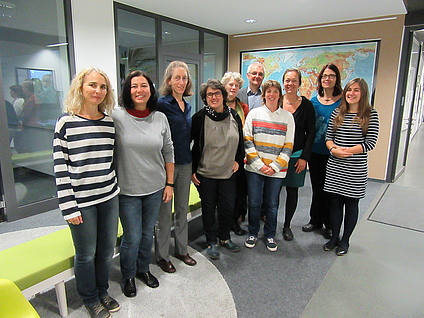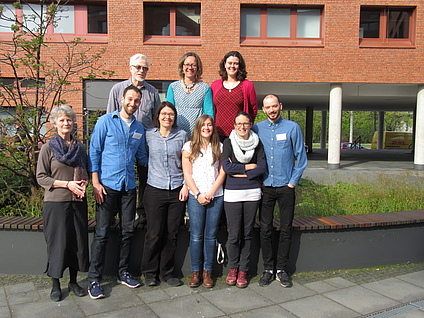sFDvent - A functional trait perspective on the global biodiversity of hydrothermal vent communities
First meeting: 10.-13.10.2016
iDiv member:
Klaus Jürgens
Project summary:
Hydrothermal vent communities differ dramatically in their taxonomic composition on a global scale, forming distinct ‘biogeographic provinces’ without shared species. We will use a functional trait approach, which offers a common currency to compare vents across these provinces. Our working group aims to build and test a global functional trait database for ephemeral, species poor, high biomass hydrothermal vent ecosystems, using species and community data collected since hydrothermal vents were first discovered nearly forty years ago. We will quantitatively assess spatiotemporal patterns in functional diversity and identify environmental and evolutionary drivers, conservation hotspots and indicators of resilience. Deep-sea mining at hydrothermal vents is expected to begin in 2017 and we expect our findings will inform the guidelines for environmental impact assessment, conservation, and management of deep-sea ecosystems at a time when guidelines are being written and discussed by industry and policymakers. We will: (i) compile, collate, curate and make freely available a database integrating species identities and abundance data for global hydrothermal vent systems; (ii) populate functional trait information for our global database; (iii) test for large-scale biogeographic patterns to identify functional diversity and productivity hotspots and areas of rapid turnover; and (iv) develop indicators of resilience (and associated R code), based on a synthesis of data following natural disturbance events like volcanic eruptions. We will use the results of this work to inform our understanding of which hydrothermal vent communities may be exceptional.
Participants:
Amanda Bates (University of Southampton); Stace Beaulieu (Woods Hole Oceanographic Institution); Abbie Chapman (University of Southampton); Ana Colaço (MARE-Azores); Andrey Gebruk (Shirshov Institute of Oceanology); Ana Hilário (University of Aveiro); Terue Kihara (Senckenberg am Meer - German Centre for Marine Biodiversity Research (DZMB)); Eva Ramirez Llodra (Norwegian Institute for Water Research); Jozée Sarrazin (Ifremer); Verena Tunnicliffe (University of Victoria); Ingolf Kühn (UFZ)
Second meeting: 24.-28.04.2017
Participants:
Amanda Bates (University of Southampton); Rachel Boschen (University of Victoria); Abbie Chapman (University of Southampton); Robert Cooke (University of Southampton); Jonathan Lefcheck (Virginia Institute of Marine Science); Pierre Legendre (Université de Montréal); Marjolaine Matabos (Ifremer); Jozée Sarrazin (Ifremer); Verena Tunnicliffe (University of Victoria)
Publications:
Chapman, A.S.A., et al. (2019) sFDvent: A global trait database for deep‐sea hydrothermal‐vent fauna. Global Ecol Biogeogr 28: 1538–1551. See here
Dykman, L. N. et al. (2021) Functional traits provide new insight into recovery and succession at deep-sea hydrothermal vents. Ecology 102( 8):e03418. See here
Cooke, R., Gearty, W., Chapman, A.S.A. et al. (2022) Anthropogenic disruptions to longstanding patterns of trophic-size structure in vertebrates. Nat Ecol Evol. See here


